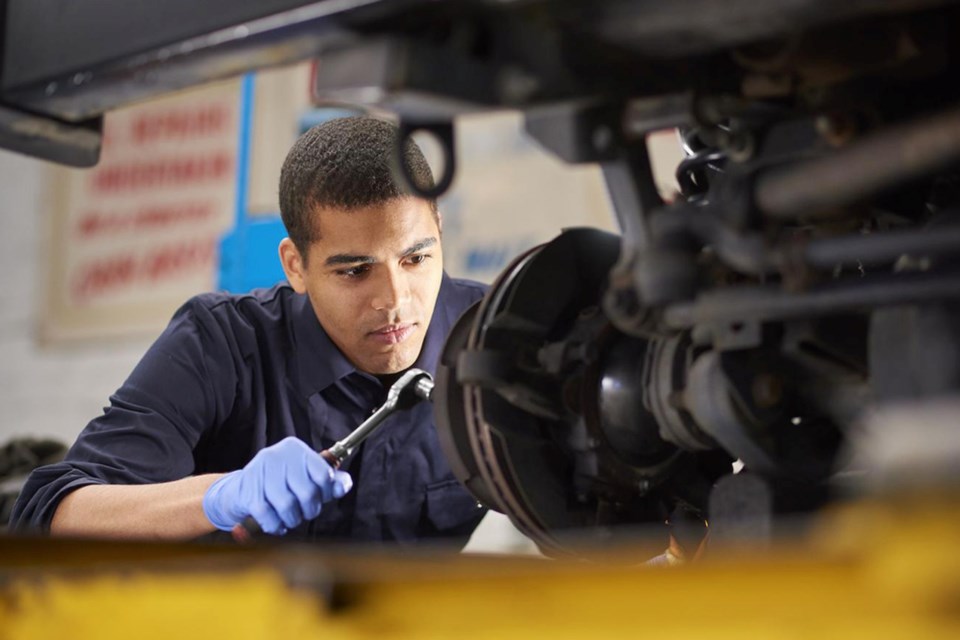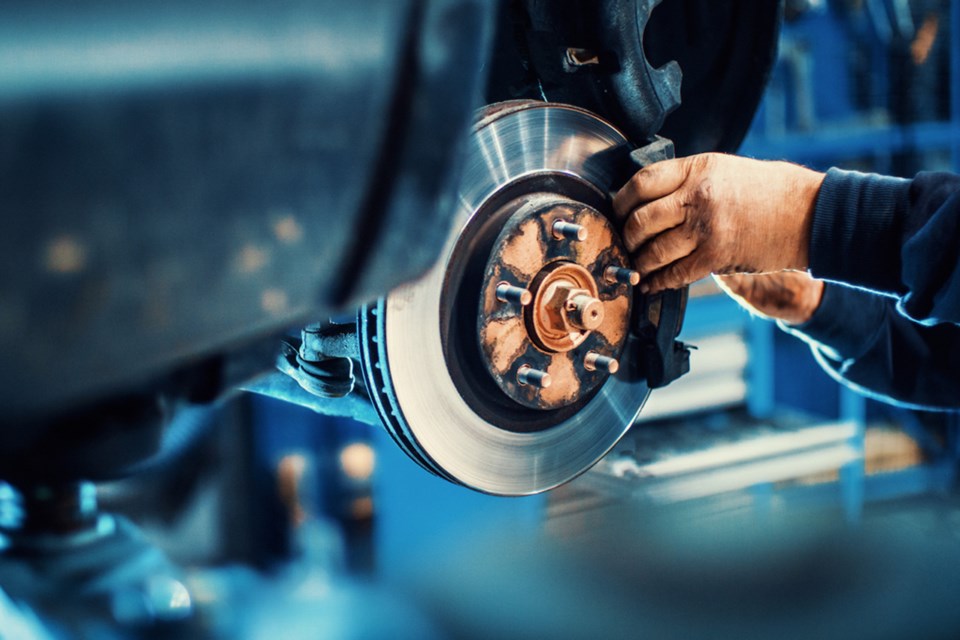Keeping your vehicle’s braking system in good health will make your daily drive safer and could save you big money on expensive repairs. However, knowing when to go in for service can often be confusing. Getting into a preventive maintenance routine is the easiest way to avoid problems. Ask for a brake inspection every time you get an oil change, or remember to have them checked every 5,000-10,000 miles. Brake pads typically last around 40,000 miles, but that number can vary widely depending on driving habits and road conditions.
Unfortunately, brake issues can arise even if you’re practicing proper preventive maintenance, so it’s essential to familiarize yourself with the early warning signs of brake failure. Below, we’ve compiled the most common red flags for your braking system - what each means for your ride and when you need to visit a professional. From leaks to squeaks, you’ll know precisely what your car is trying to tell you!
Strange Noises
Your brakes should be practically silent, and any abnormal noise is cause for at least mild concern. Grinding is the most severe noise and will require the most urgent attention. If you hear what sounds like metal grinding on metal, your brake pads are likely finished, and the caliper is applying directly to the rotor. Calipers and disc rotors are much more labor-intensive and costly to replace than brake pads, so addressing this issue quickly is imperative.
Squeaking brakes are also a sign that new brake pads are needed. Many pad brands include steel indicators that’ll create a squeak when significant wear has occurred, making it much easier for drivers to know when to replace them. Keep in mind that dirt and dust can cause minor squeaking, so hit the car wash, and be sure to get behind your wheels to clean the braking system. Drive immediately after washing to prevent any rust or damage, and if the problem continues, take it to the shop for an inspection.
Pedal Resistance
Another common way to diagnose braking issues is based on the pedal’s feel when applying pressure. As your pads wear, you may notice that you have to apply more pressure to the pedal when you want to slow down or come to a stop. This decreased resistance can cause the pedal to feel “sticky” and less responsive to pressure increases. Have your brakes inspected with close attention paid to the fluid and hoses, as decreased resistance can often be an early indicator of air and fluid leaks.
 sturti via gettyimages.com
sturti via gettyimages.comFluid Leaks
Brake fluid that’s visibly leaking warrants an immediate trip to a mechanic shop. Typically, it’s just a hose that needs replacing, but larger issues could be the cause. Be sure to check under your hood regularly for any signs of leaks, and while you’re there, be sure to check your brake fluid levels. While slow depletion is normal, any significant level changes in a short period could be a sign that you have a leak.
Vibrations
Any vibrations of your pedal or vehicle while applying the brakes is cause for concern. Pedal vibration is often caused by damage or wear to your brake rotors. Brake pads require a smooth surface to work correctly, and any damage to the rotors will cause your pedal to shake or pulse. Schedule a visit for a brake inspection if you feel any of these sensations when applying your brakes.
Vehicle vibrations are also an indication of significant problems to your braking system. A shaking vehicle typically means you’re out of alignment, and a quick repair is all that’s needed to alleviate the issue. If you notice your vehicle shaking only when the brakes are being applied, you’re likely dealing with worn-out rotor discs, and immediate replacement is required. Ignoring worn-out rotors may cause the entire braking system’s failure, creating a dangerous situation and a costly repair bill.
Following a preventive maintenance schedule for all of your car’s components is just the start of keeping your ride in optimum condition. Have your brake pads checked frequently, and pay close attention to any new sounds or sensations when applying pressure to the pedals. Catching an issue early could be the difference between a quick fix and an expensive repair.
 This story was made possible by our Community Partners Program. Thank you Davis Chevrolet for helping to expand local news coverage in Alberta. Learn more.
This story was made possible by our Community Partners Program. Thank you Davis Chevrolet for helping to expand local news coverage in Alberta. Learn more.


